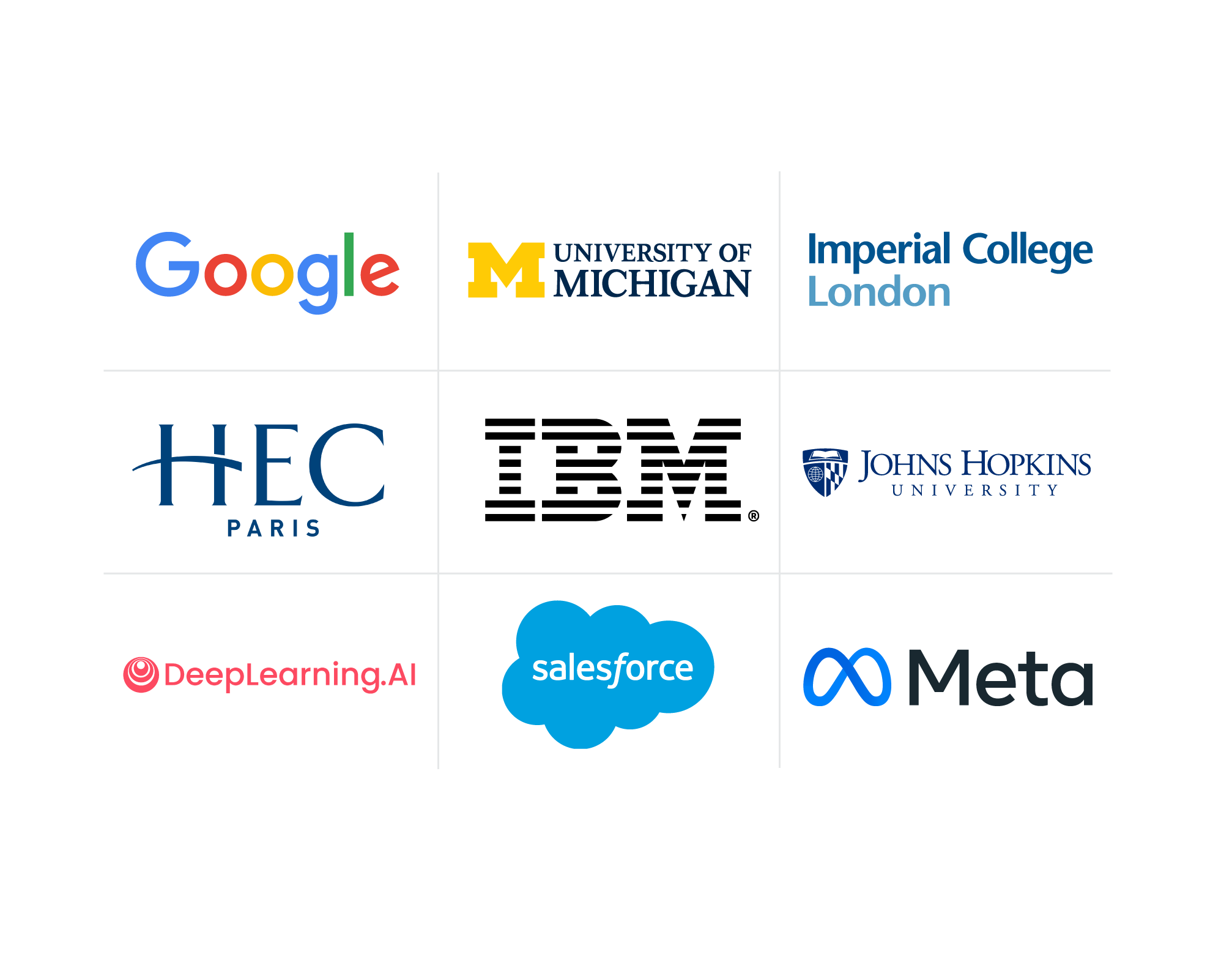7 Power Skills in Demand for 2026 and How You Can Help Your Employees Develop Them
As the world of work changes, so do your needs. Many organizations now realize that power skills are just as important as technical skills in the workplace. Learn what power skills are in demand and how you can help your employees hone them.
![[Featured image] Two women in a meeting discussing a marketing plan](https://d3njjcbhbojbot.cloudfront.net/api/utilities/v1/imageproxy/https://images.ctfassets.net/2pudprfttvy6/650icckg7YO50Fmwj5Je0t/edd9b4f524121e28b69309275c1b3751/GettyImages-1319571139.jpg?w=1500&h=680&q=60&fit=fill&f=faces&fm=jpg&fl=progressive&auto=format%2Ccompress&dpr=1&w=1000)
Your employees need to know how to do their jobs and have the knowledge, education, and experience to back them up. But what many companies have traditionally overlooked are power skills. These differ from software literacy, copywriting, or speaking a foreign language. They are the human skills that help employees better interact with others and the work environment.
Power skills may be more critical now than ever, and helping your employees develop and sharpen them can benefit your organization. According to a 2022 Pearson study, power skills are more desirable than technical skills and will be through at least 2026 [1]. Consider these in-demand power skills and how you can empower your employees develop them.
What are power skills?
Power skills is simply another name for workplace skills or human skills. It's considered a modern rebranding of these skills to prove their importance in the workplace. In the past, organizations focused more on whether a candidate could, for example, operate a computer rather than whether they could communicate well. Still, business leaders discovered in recent years that both soft and technical skills are important for efficiently running their businesses.

Human skills vs. technical skills
Technical skills are the skills you can learn through training and education that apply directly to your job. Human skills have more to do with how you interact with your environment and the people in it, and they typically apply to almost any job. These human skills can take more time and practice than technical skills. While you can take a course and learn how to use a particular type of software, you likely need some real-world experience to learn how to solve problems or make good decisions. These are skills you develop over time through various experiences.
Examples of human (power) skills include:
Creativity
Critical thinking
Teamwork
Empathy
Time management
Communication
Decision-making
Leadership
Examples of technical skills include:
Video production
Copywriting
Project management
Foreign languages
Graphic design
Data entry
Search engine optimization (SEO)
Carpentry
Read more: Hard Skills vs. Soft Skills: What’s the Difference?
How employees with strong power skills benefit an organization
Strong power skills can help an employee's career, but your organization also benefits when employees possess these skills. These benefits might include:
Discovering untapped talent: You may find that an entry-level employee has a knack for customer service and sales. Helping them hone these skills can lead to your organization hiring from within when the need for a new salesperson arises.
Creating an agile workforce: When your employees have strong power skills, like problem-solving, they adapt quicker to the unknown—whether it's new technology or a worldwide pandemic that disrupts everything.
Improving company culture: Improving power skills can lead to an inclusive workplace that often leads to a more positive and inviting company culture.
Increasing productivity: Employees with strong power skills often work faster and are more productive overall.
Improving employee retention: Offering training and other opportunities to help employees improve their skills shows them that you value them, which can lead to greater retention.
Attracting high-quality talent: When your company culture is positive and your employees are happy, your reputation as a desirable workplace grows. This can help you attract new high-quality talent when necessary.
Creating greater customer satisfaction: Employees with strong power skills can quickly adapt to customers' changing needs. This often leads to higher customer satisfaction rates.
Creating successful managers and leaders: Good managers and leaders often have strong power skills. Honing these skills can help you develop future leaders that you can hire from within your workforce.
7 power skills that are in demand in 2024
Although any combination of power skills can help improve your employees' jobs, some are considered critical, particularly in 2024. Here are seven that you may want to focus on with your employees in 2024 and for the foreseeable future:
1. Communication
Every job requires communication on some level, including speaking, active listening, body language, observing, video calling, emailing, creating documents, and much more. With globalization and remote work on the rise, knowing how to communicate well, both in person and virtually, with people worldwide is more important than ever. An employee who can clearly express their thoughts and ideas is vital to your organization, as is an employee who listens well and understands what other people have to say.
2. Customer service
The Pearson Study identifies customer service as one of the world's top five desired power skills [1]. A report from Salesforce revealed that 90 percent of customers say that the service they receive is just as important as the product they buy [2]. For this reason, many organizations report that a need for employees with strong customer service skills is on the rise in 2025. When a customer has a pleasant experience with any member of your staff, it can help build loyalty and may generate new customers through word of mouth and online reviews.
3. Leadership
While not every employee aspires to a management or leadership position, taking on a leadership role is vital across all departments and levels of your workforce. It is a critical power skill for modern times and a desirable skill for younger workers. Having leaders scattered throughout your team can inspire other members, spark creativity and innovation, and help you stay competitive.
4. Decision-making
Every organization needs employees who make good decisions, and in some cases, you need employees who make quick decisions on the spot. Helping employees build confidence in all areas of their job can lead them to make better decisions. The more employees who can make decisions on their own in a timely manner, the more efficient and competitive your company can be.
5. Problem-solving and critical thinking
Being a good problem solver usually means knowing how to identify a problem and following a series of steps to develop a solution. From entry-level employees to executives, those who can solve problems independently often become more critical thinkers, leading to better overall job performance. Critical thinking lets your employees better understand a problem and apply logic and reason.
Read more: 7 Problem-Solving Skills That Can Help You Be a More Successful Manager
6. Collaboration and teamwork
With many employees working remotely or keeping hybrid schedules, applying collaboration and teamwork skills can be tricky, but they're more important than ever. Creating teams of individuals with unique backgrounds may help your organization solve problems faster, increase innovation, and become more efficient.
7. Emotional intelligence
As a positive work-life balance becomes increasingly important for employees worldwide, so does the need for emotional intelligence. This has to do with how a person controls their emotions. According to Mental Health America, emotional intelligence involves five key areas [3]:
Self-awareness
Self-regulation
Motivation
Empathy
Social skills
Mastering emotional intelligence means recognizing that you cannot control how other people act but can control how you react. This can help your employees with various issues, ranging from stress management to working with angry customers.
Ways to help employees improve their power skills
Many organizations have taken steps to help foster and grow their employees' power skills through upskilling programs or creating job-embedded opportunities to develop and refine these skills. For example, if you want to help your staff build teamwork and communication skills, try team-building exercises or group goal-setting activities. You also can assign employees to new projects they may be unfamiliar with so they can practice skills like problem-solving and decision-making.
Make an investment in your employees and the future of your company with one or more of these other upskilling ideas:
Encourage coaching or mentoring.
Create eLearning opportunities that employees can participate in on their own time.
Offer lectures and talks from experts.
Provide classroom-style training.
Reward employees who demonstrate strong power skills in certain situations.
Create a culture of lifelong learning.
Spotlight employees with strong power skills.
Provide opportunities in which employees can practice specific power skills.
Create professional development plans that center around certain skills.
Keep the lines of communication and feedback open from management and employees.
Next steps
An excellent way for employees to develop their power skills is to take self-guided online courses that allow them to practice and learn on their schedules. Respected businesses and educational institutions worldwide offer several options on Coursera. Focus on in-demand power skills with courses like Improving Communication Skills offered by the University of Pennsylvania, Introduction to Customer Service offered by CVS Health, and Principles of Management by Johns Hopkins University.
Article sources
Pearson. "New Pearson Study Identifies Human Skills as the ‘Power Skills’ Most in Demand in World’s Major Job Markets" Accessed January 15, 2025.
This content has been made available for informational purposes only. Learners are advised to conduct additional research to ensure that courses and other credentials pursued meet their personal, professional, and financial goals.


